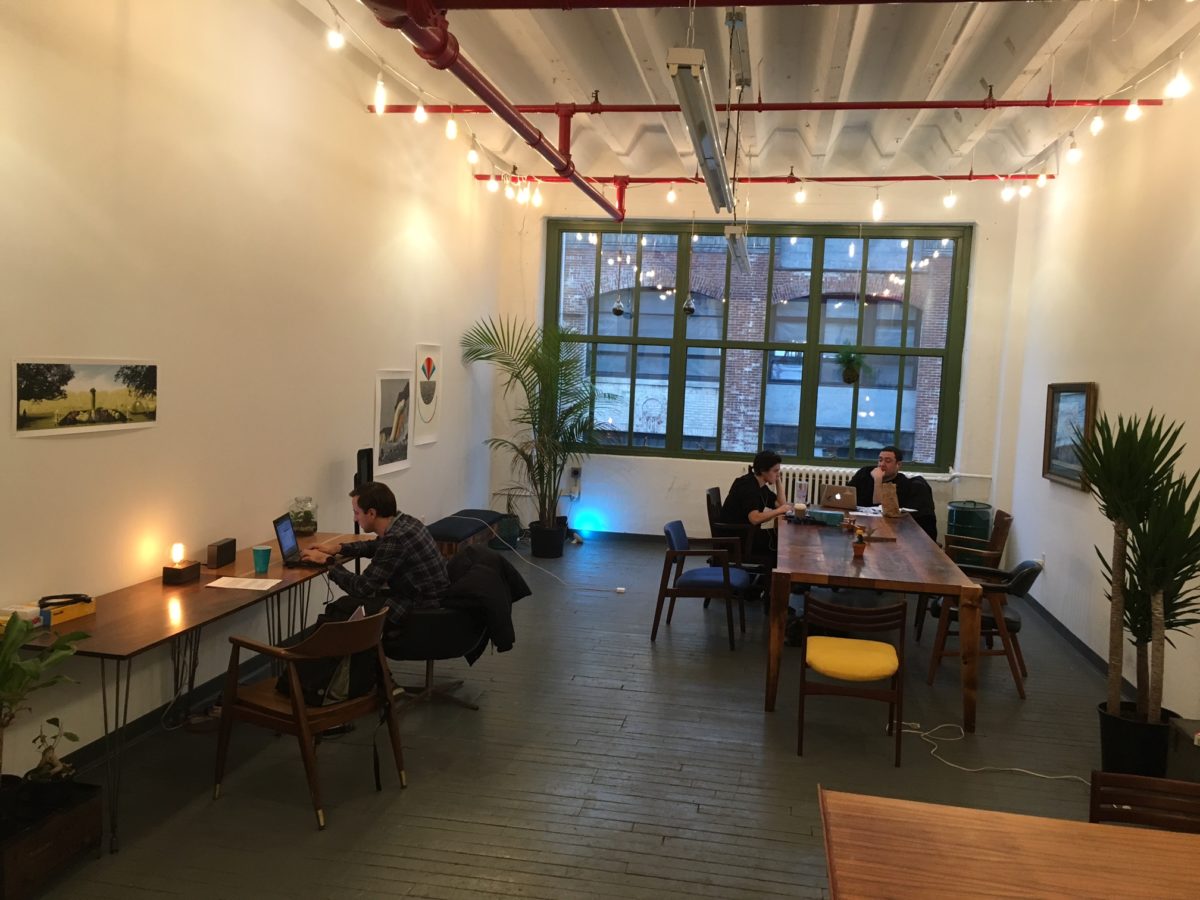Solomon Lederer is not boring. The former Orthodox Jew and computer science Ph.D. was fired from Morgan Stanley after his attempt to create some type of IRL social network on the subway landed him in the Wall Street Journal and now he’s opened what we believe is the country’s first blockchain coworking space. He hopes to eventually run the space as a decentralized autonomous organization, where members vote equally on how it should be managed and operated.
“When I first started reading about bitcoin a few years ago, I thought, This is the future,” Lederer said in an interview. “It allows a whole other layer of systems, sort of how the internet itself is a great communication layer, this blockchain thing is creating a new kind of computer, it’s like a computer layer that sits on the internet.”
And so he started Coinspace, based in Sunset Park’s Industry City, where people similarly interested in the blockchain can come and work on their projects. Lederer says there are about six full-time members of the space and several more in its orbit. Lederer allows people to work out of the space for no charge for up to a month, and those who find it works well stay on. Companies there include Coincube, which does automated bitcoin trading, Freemit, which does bitcoin transfers, and Coin.Press, a blockchain-interest publisher.
While there are some fintech and blockchain accelerators and incubators, Technical.ly Brooklyn believes that Coinspace is the only true coworking space for blockchains in the country.
San Francisco has a bitcoin store, Nakamoto’s at 20Mission, Manhattan has the all-purpose Bitcoin Center, Chicago has incubator Chicago Bitcoin Center and there are a number of blockchain coworking spaces abroad, including the Melbourne Bitcoin Technology Center and something called rPod Coworking Space, in Thailand. But for a true blockchain coworking space, we think Coinspace is it.
Lederer’s goal is to operate the space in accordance with the decentralized and non-hierarchical ethos of the blockchain.
“The idea of the space is that we operate as a coop,” he explained. “It’s $225 a month and still denominated in dollars, I know that’s unfortunate. I’m hoping that once we fill up completely it will be self-sufficient and move away from membership cost altogether and we’ll just add up expenses and divvy up among the members.”
To this end, Lederer keeps the expenses of the space completely transparent, with an open Google Doc of every expense and where it came from. They even use a Slack plugin that allows members to move Ether tokens to each other. Recently one member bought a fancy new door lock for the space and Lederer sent him about $250 in Ether tokens via the Slackbot. Lederer plans to use the dApp Boardroom as a governance method, where members can vote on decisions on the operations of the space via the blockchain, where the options will be written into the code and proceed automatically after a vote.
This type of transparent, automatic and final programming is what’s so appealing to Lederer and to blockchain boosters generally. Lederer explained the promise the platform contains using the example of a lottery:
Ethereum is going to have huge implications, even with something like running the lottery. Right now only the government can run a lottery. Once you have a global computer anyone can access, you can essentially upload your lottery program onto the computer and it can be designed that from all the money sent to it over the week, it will randomly send the money to one person. You can have this lottery that no one can censor or block. A lottery is maybe not an interesting example because it doesn’t do any good for society, but conceptually it’s a good example because everyone can see what the lottery is doing — what the code is doing — and see that it is paying out 99.9 percent of what comes in and the creator is maybe taking a tiny cut. Everyone else is now benefitting because the government is not taking 50 percent or whatever it takes. It’s really important that you can have a computer system that can have tokens of real value.
Sound interesting? Coinspace is happy to have you come down and check it out. They host plenty of events, too, if you need to study up on what all this means.
Join the conversation!
Find news, events, jobs and people who share your interests on Technical.ly's open community Slack

